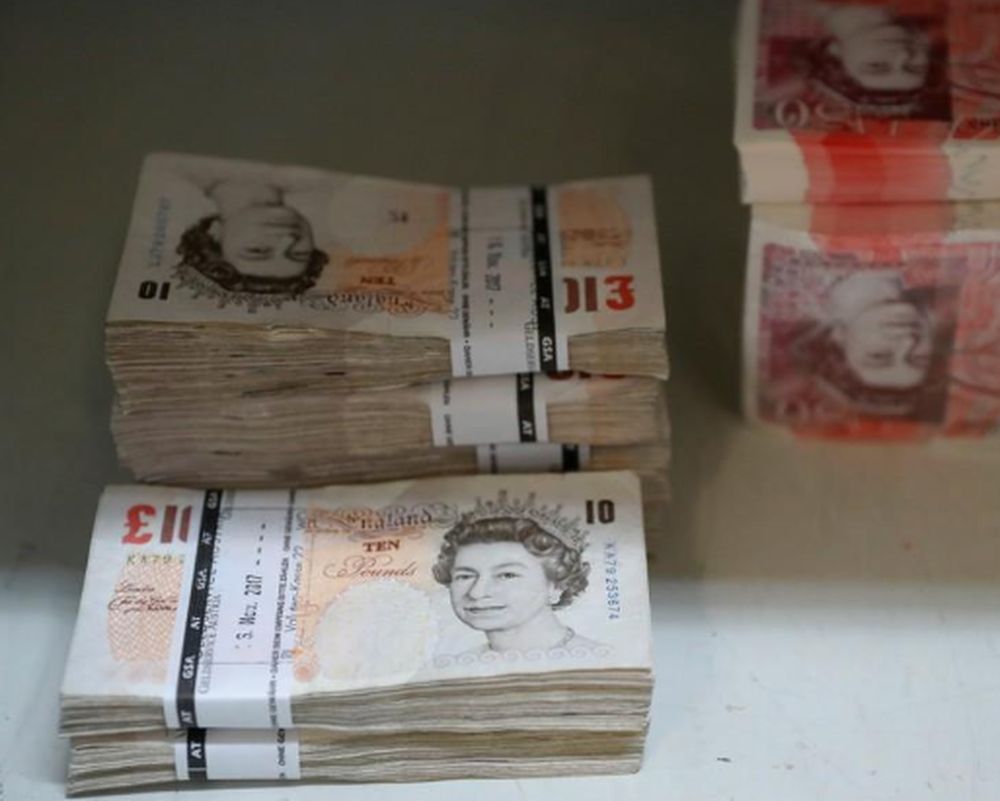LONDON, Aug 28 — The pound fell to a six-day low today, holding barely above US$1.22 as Britain’s Queen Elizabeth gave the nod to Prime Minister Boris Johnson’s plan to suspend parliament, leaving lawmakers little time to prevent a no-deal Brexit.
A statement from the official body of advisers to the Queen, known as the Privy Council, confirmed that the British parliament will be prorogued on a day between Sept. 9 and Sept. 12, until Oct. 14.
Sterling plunged earlier as low as US$1.2156 and government bond yields fell when Prime Minister Boris Johnson sought to suspend parliament in September, just days after lawmakers return from summer recess. The Queen’s Speech to launch new legislation would be scheduled for Oct. 14, he said.
While Johnson denied he was seeking to prevent parliament from obstructing his Brexit plans, the move will curtail the time available to lawmakers who want to prevent Britain from crashing out of the European Union without an exit agreement .
“Today’s development brings us firmly into the realms of a constitutional crisis,” Derek Halpenny, head of research for global markets at MUFG, said, saying there was an “incredibly narrow window” for parliament to try delay Brexit or organise a no-confidence motion against Johnson.
“No-deal Brexit is looking ever more likely, sterling downside risks will continue to plague the market,” Halpenny said, predicting sterling to test and breach its recent US$1.2015 low.
Sterling traded 0.6 per cent lower by 1500 GMT and was down 0,4 per cent to the euro at 90.6 pence, having earlier weakened to 91.265 pence, the lowest in nearly a week.
The developments took the edge off a pound rally yesterday, when it touched a one-month high on news opposition parties were thrashing out ways to block a hard Brexit.
“For the pound to recover the fall this morning, anti-no- deal MPs will have to get their acts together in the first weeks of September,” Jordan Rochester, a strategist at Nomura said, raising the odds of a no-deal Brexit to 44 per cent vs 40 per cent earlier.
Brexit-sensitive easyJet and International Airlines Group , the owner of British Airways, slumped 2 per cent to 3 per cent. Housebuilders such as Persimmon and Taylor Wimpey were down 3-4 per cent.
As investors flocked into safer assets, British 10-year Gilts rose, pushing yields to their lowest in more than a week .
Shorts worth US$7 billion
Sterling’s decline may have been tempered by the fact that investors are already extremely bearish on the British currency – speculators’ outstanding short sterling positions amounted to US$7.028 billion as of Aug. 20, data from the Commodity Futures Trading Commission showed.
That’s close to the levels held two and a half years ago.
Moreover, given Johnson’s apparent determination to take Britain out of the EU on Oct. 31, with or without a deal, derivatives markets indicate sterling is more likely to fall than rise in coming months.
Implied sterling-dollar volatility, a gauge of expected price swings, has surged to the highest since January, contrasting with other developed-market currencies, where volatility remains subdued.
Three-month volatility rose above 13 vols, compared to less than 11 vols at the end of July
The pound has lost 4.3 per cent of its value against the dollar this year and looks undervalued by most measures, but investors remain wary of buying it back just yet.
“Sterling is cheap, so we’re primed to increase our sterling exposure, but we won’t do that until we get some clarity on a no deal or deal,” said Rory McPherson, investment director at Psigma Investment Management. — Reuters






















